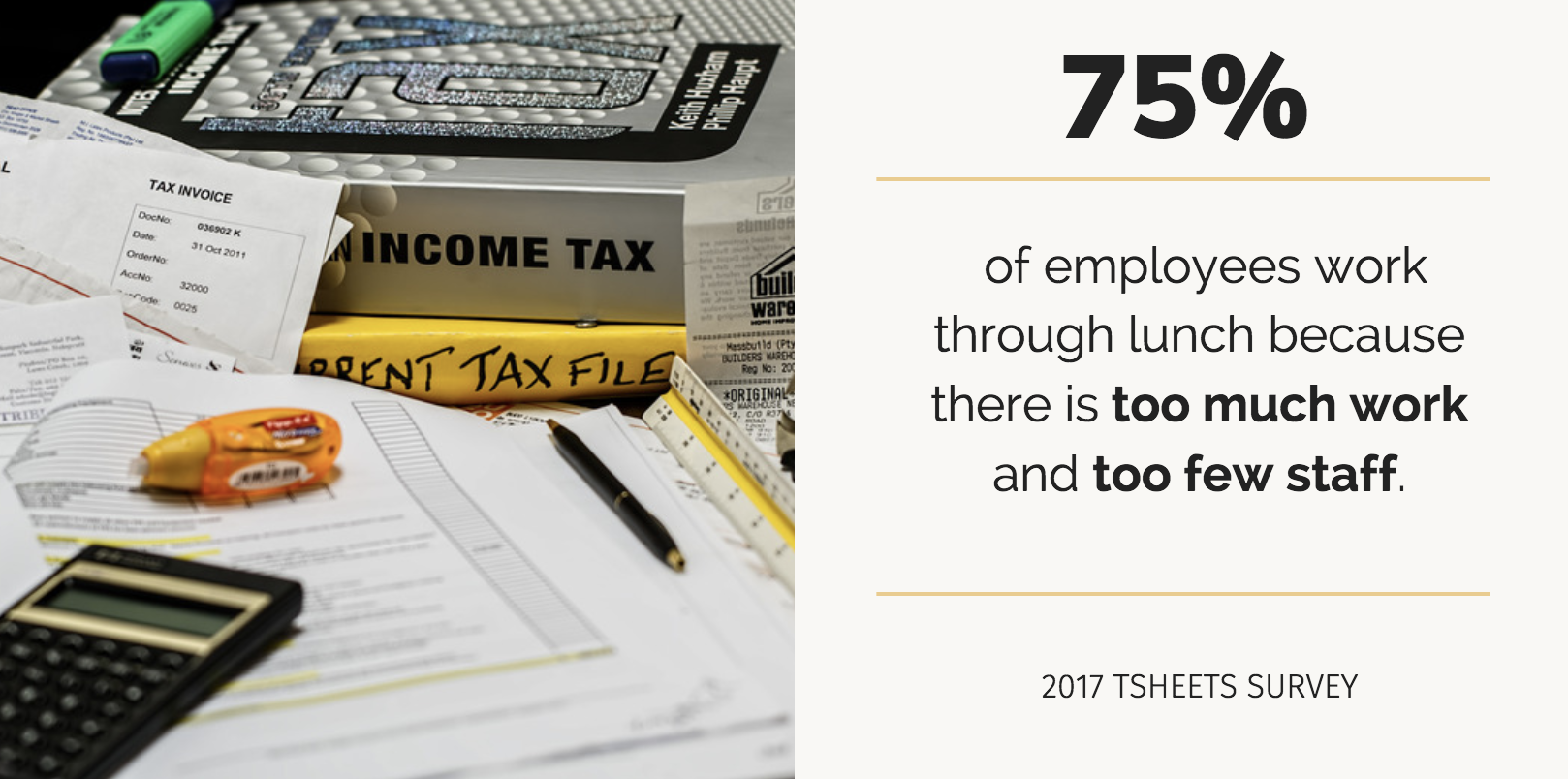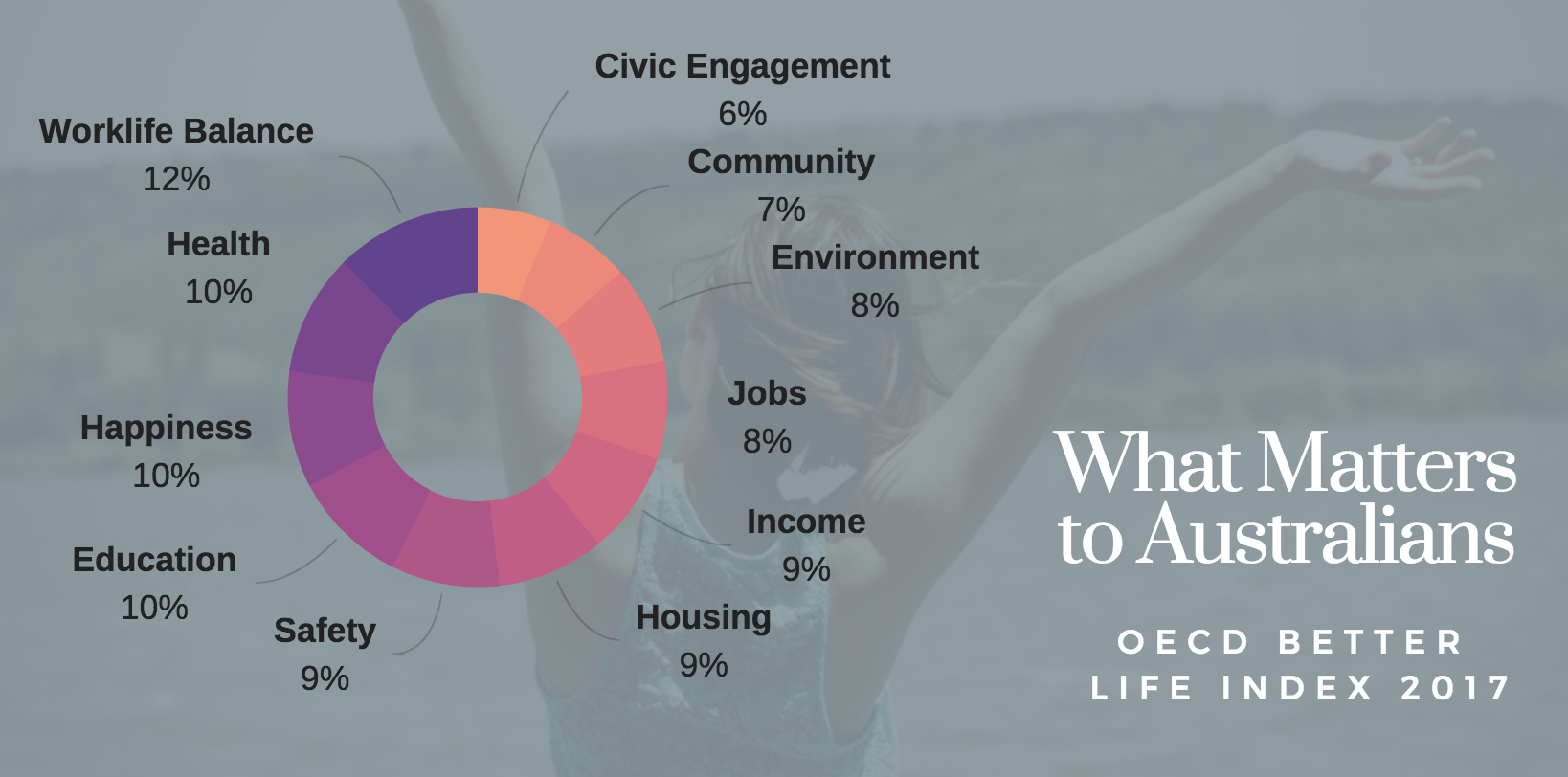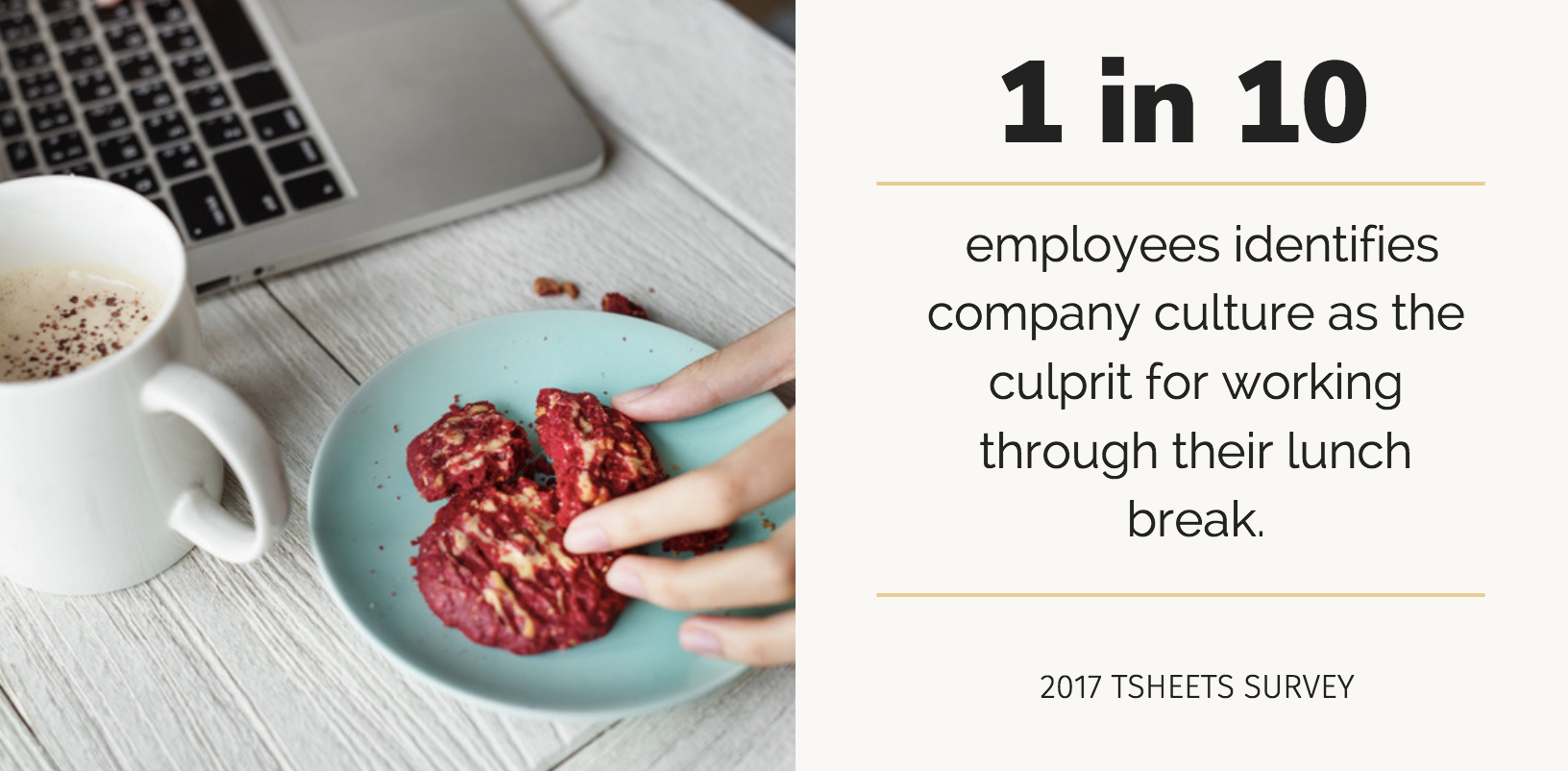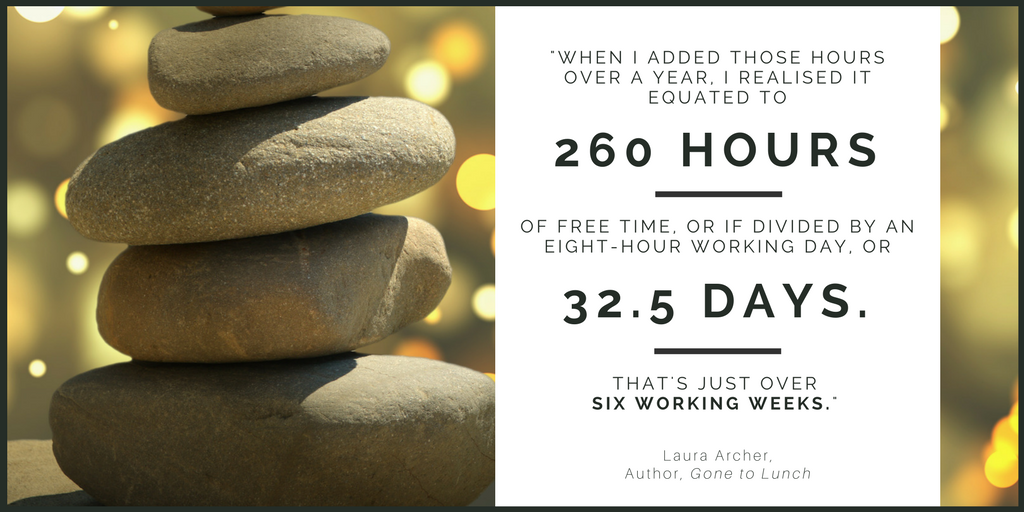It’s almost time for lunch and your tummy growls to signal its need to refuel. But there’s a deadline and still so much work at the office. If you’re the type who thrives on busyness, where it sends the ichor of Zeus flowing through your veins to do the best of your life, you will either choose to eat at your desk to work through lunch or skip it completely to prioritise the task at hand.

For most of us, however, eating our lunch at our workstation or skipping it altogether doesn’t give way to ideal results. In fact, a recent survey of 500 Australian employees, conducted by TSheets, shows working through lunch is often not done by choice. Some respondents also state their reason for working through lunch is so they can leave earlier. The lunch break is put in place as part of the workday to provide mental and physical rejuvenation, and the effects of denying its due purpose will affect your productivity, your overall happiness and even influence your workplace culture, long after the unfulfilled reprieve passes.
Rest and food are basic necessities. In recent years, lunch has been seen as a distraction that prevents more work from getting done. But this is a scientifically proven fallacy. Our brain consumes 20 percent of all the energy we consume over the course of the day, more than any other organ. And hunger is part of a complex system of chemicals that sends signals between your brain and your body to let you know it’s time to refuel. So when you deny yourself of fuel, you’re slowly but surely cutting off communication between the two parties. They then punish you with fatigue and irritability.
Then there’s eating lunch while you continue to work. Studies have shown how disconnecting oneself from work completely can help the brain reset and renew its energy and sense of purpose. Those ‘aha!’ moments in the shower happen because creativity and innovation surge when you change your environment, not when you drown yourself in the problem. So if you’ve hit a wall, it’s time to step away.
Every year, the Organisation for Economic Co-operation and Development (OECD) releases its Better Life Index. The rationale is simple: There is more to life than the cold numbers of GDP and economic statistics. The index compares the well-being across different countries using 11 different factors to determine living conditions and quality of life.
For Australians, a work-life balance, health and happiness are the most important aspects of their life. While findings are indicative and not representative of the population at large, they resonate with another diagnosis, most recently from CSIRO’s Workplace Safety Futures and Deloitte Human Capital Trends. The hyper-connected workplace is resulting in time away from family and an increase in chronic illnesses among Australians. You can’t be feeling great if you’re starving, and you can’t be doing great if you don’t get to rest.

One in 10 employees identifies peer pressure disguised as company culture, the need to brown-nose and feeling guilty as the culprits for working through their lunch breaks. Michael Hyatt, CEO and founder of a leadership development firm, goes as far as saying “the decline of the lunch hour is a sign of poor leadership”. If there is a perceived notion that one is expected to work through lunch, he urges leaders to turn this around. Chaining an organisation to the desk is a toxic practice. It means missed interactions and socialisation that is vital to productivity and well-being. It is ultimately setting everyone up to fail.

Laura Archer had been wanting to get in touch with a friend for a while. But when evenings and weekends came along, she found herself flat out like a lizard drinking. She took a gander at her diary and found five hours she was wasn’t using — her lunch breaks.

She decided to use that hour off work to learn new skills, explore, catch up with friends and meet new people. Her to-do list grew, but so did her energy, happiness and job satisfaction. She started a blog and wrote a book. Today, she makes it her mission to help others reclaim their lunch break so they too can benefit as she has.
We’ve gotten used to technology coming to our aid when trouble befalls, but in this case, the way to a ‘better’ you is actually through your stomach, by way of a proper meal and fair dinkum rest to match.